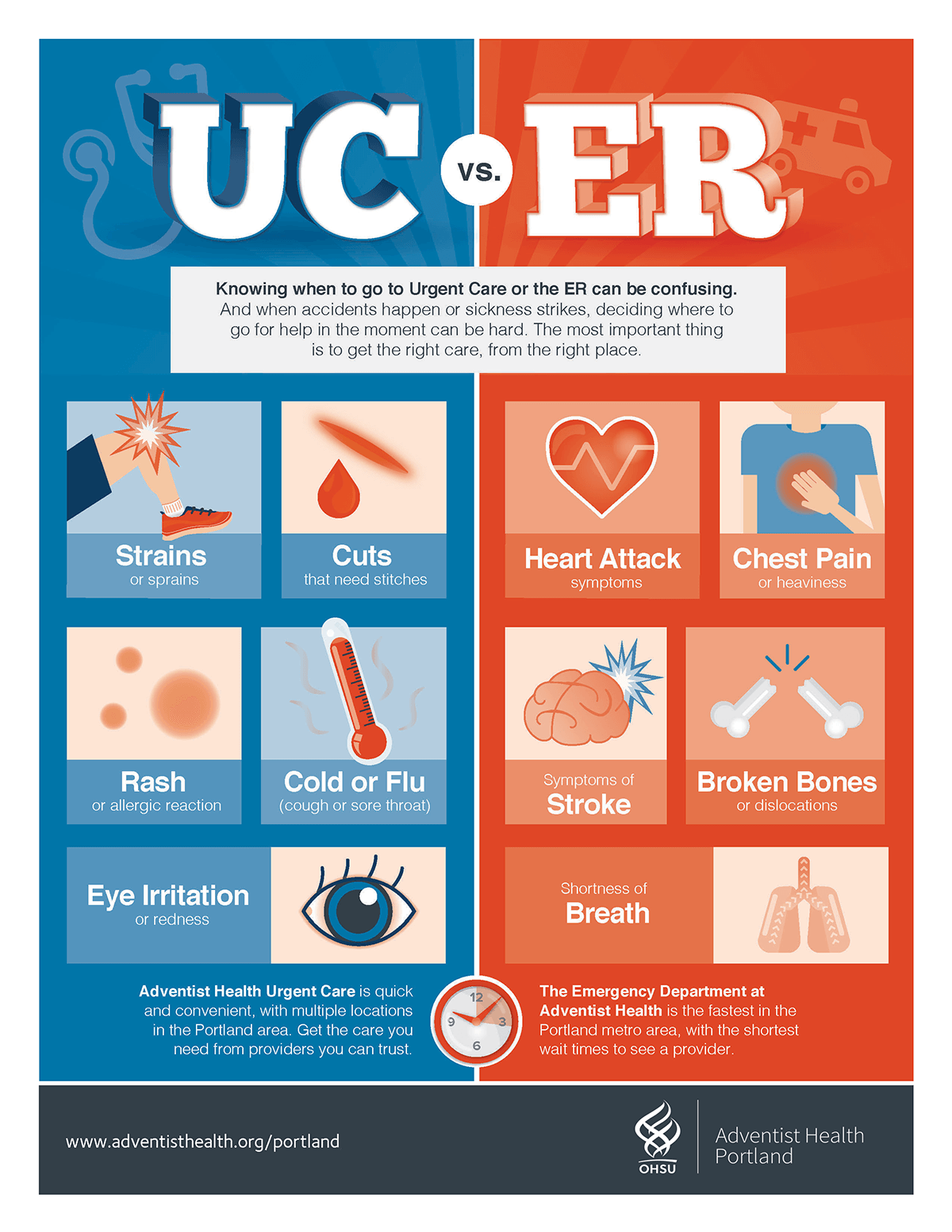Urgent Care vs. Emergency Care
Call 911 if you or someone near you has a life-threatening emergency.
Do you need to race to the ER? Or should you make a trip to urgent care? Here are some guidelines to help you choose.
Urgent care: For urgent conditions but not life-threatening emergencies
Urgent injuries and conditions require care quickly — usually within 24 hours — but aren’t threatening your life or a limb. Examples of urgent conditions include:
- Accidents, falls and moderate cuts requiring stitches
- Breathing difficulties like mild to moderate asthma
- Cuts that need stitches
- Eye irritation and redness
- Fever, flu, severe sore throat and coughs
- Minor broken bones and fractures like fingers and toes
- Skin rashes and infections
- Sprains, strains and moderate back problems
- Urinary tract infections
- Vomiting, diarrhea or dehydration
Our urgent care clinics are also able to provide diagnostic tests and imaging like blood tests and X-rays. We also see many work-related injuries and provide many vaccinations.
Emergency care: For conditions that threaten your life or limb
Conditions that could permanently damage you or endanger your life should be seen at the emergency room. Examples include:
- Compound fracture (bone protrudes through skin)
- Convulsions, seizures or loss of consciousness
- Difficulty breathing
- Dislocations
- Heart attack symptoms including chest pain lasting longer than two minutes
- Heavy and uncontrollable bleeding, deep knife wounds and gunshot wounds
- Moderate to severe burns
- Poisoning
- Pregnancy-related problems
- Serious head, neck or back injury
- Severe abdominal pain
- Severe chest pain or heaviness
- Stroke symptoms like sudden numbness, weakness or slurred speech
- Suicidal or homicidal feelings
Remember: Call 911 if you or someone near you has a life-threatening emergency.
Download and print this graphic so everyone in your household can quickly choose urgent care or ER when needed.

